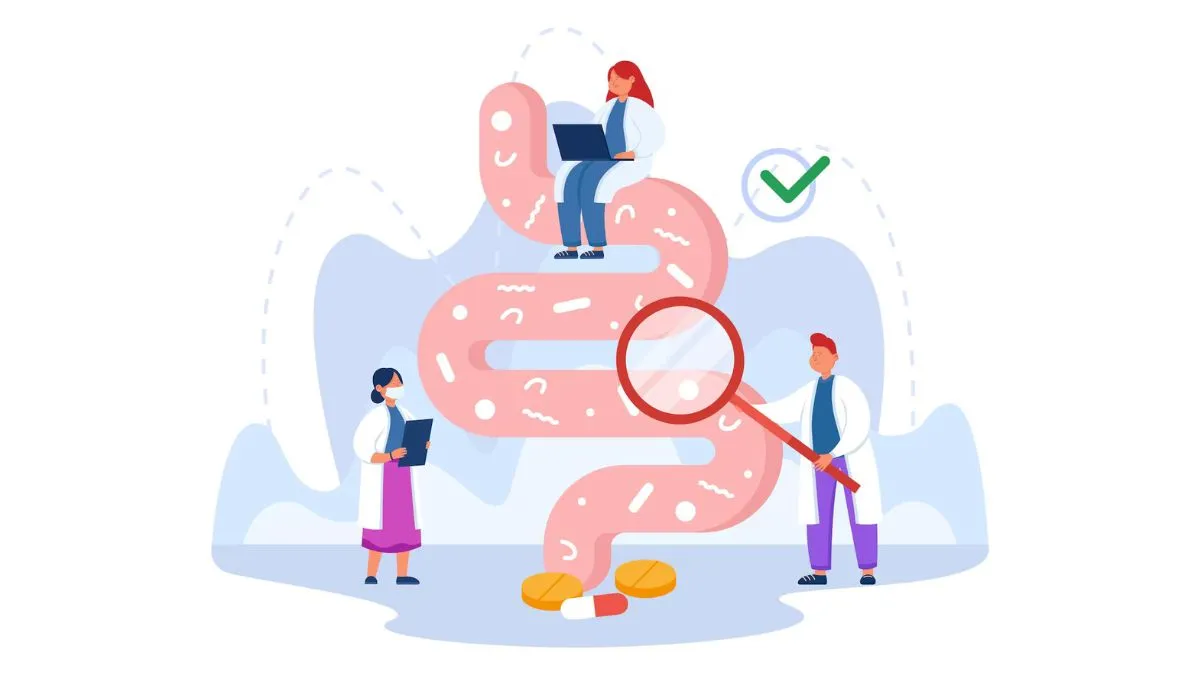
New technologies that improve patient care and results are ushering in a new era of gastrointestinal (GI) surgery. Minimally invasive techniques that lessen tissue damage and hasten healing are made possible by robotic-assisted surgery's improved visualization and accuracy. Additionally, fulfilling the requirements of the inclusion of artificial intelligence (AI) allows surgeons to customize procedures to each patient. Better safety, shorter hospital stays, and a higher standard of living for patients are anticipated in the future of GI surgery, thanks to the use of AI for surgical planning and risk prediction and robotics for improved surgical execution.
Table of Content:-
Robotic Surgery: Improving Accuracy and Recuperation
“The field of gastrointestinal care has advanced significantly with robotic-assisted surgery. Surgeons can now execute complex procedures with greater control, flexibility, and precision thanks to this cutting-edge technology,” shares Dr. Kona Lakshmi Kumari - MS, FICS, FIAGES Department: Bariatric Surgery, Surgical Gastroenterology.
We can perform intricate procedures with little intrusion by using robotic systems, which shortens recovery times and enhances patient outcomes overall. This is especially important when performing surgeries on delicate organs like the liver and pancreas, where accuracy is critical.
Additionally, robotic surgery improves dexterity and vision, which helps surgeons more adeptly navigate intricate anatomical structures. Less tissue damage, less blood loss, and fewer postoperative complications are the outcomes. Additionally, patients frequently return to normal activities more quickly and stay in the hospital for shorter periods of time, which greatly improves their quality of life following surgery.
Also Read: Gynaecological Cancers And Fertility: How Robotic Surgery Makes a Difference
AI-Assisted Surgery: Revolutionizing Gastrointestinal Care
Another revolutionary development in the field of gastrointestinal surgery is artificial intelligence (AI). Complex medical images can be analyzed by AI algorithms to help us identify issues more accurately and earlier. This ability is especially helpful for differentiating between conditions or detecting precancerous lesions.
Dr. Kona Lakshmi Kumari explains, "AI enables us to customize the approach to individual patient needs by analyzing large volume of patient data, guaranteeing that they receive the least invasive and most effective treatment possible. AI's integration into surgical practice improves surgical planning and diagnostic precision, which eventually benefits patients."
Also Read: Robotic myomectomy: How It Is Different From Traditional Myomectomy, Benefits, Safety and Risks
Personalized Treatment Approaches
A move toward personalized medicine is being stimulated by the incorporation of cutting-edge technologies in GI surgery. Surgeons can customize treatment plans to each patient's needs by examining patient-specific data, such as genetic profiles and medical histories. This individualized approach minimizes needless risks while guaranteeing that patients receive the most effective interventions.
Furthermore, surgeons can adjust their tactics in real time during procedures thanks to the flexibility of robotically assisted techniques. This adaptability is essential in complicated procedures where unexpected difficulties might occur, guaranteeing that patient safety always comes first.
Patientcare Outcome
As per Dr. Kona Lakshmi Kumari , "Integration of robotics and AI is improving patient care outcomes in gastrointestinal surgery. Improved surgical accuracy speeds up recovery, decreases complications, and shortens hospital stays. AI makes it possible to create individualized treatment programs, guaranteeing less invasive and more successful procedures catered to each patient's needs. These developments promise patients a better quality of life, safer surgeries, and faster recovery."
Emerging Trends and Challenges
There are a couple of difficulties that need to be resolved as these technologies develop further. In environments with limited resources, access may be confined by the high cost of deploying robotic systems. Comprehensive training programs are also desperately needed to ensure that medical personnel are competent in the efficient use of these cutting-edge instruments.
Despite these challenges, the future of gastrointestinal surgery looks promising. The potential for robotics and AI to transform patient care is vast, offering improved accuracy, safety, and personalized treatment options. As these technologies become more integrated into clinical practice, we can expect significant advancements in patient outcomes and overall quality of life.
In conclusion, the integration of robotic systems and artificial intelligence in gastrointestinal surgery is set to redefine patient care. These innovative technologies not only enhance surgical precision and safety but also enable personalized treatment approaches that significantly improve patient outcomes. As we embrace these advancements, the future of GI surgery holds great promise for safer procedures, faster recoveries, and an overall enhancement in the quality of life for patients. Continued investment in these technologies will be essential to ensure that high-quality care remains accessible as healthcare evolves.
Also watch this video
How we keep this article up to date:
We work with experts and keep a close eye on the latest in health and wellness. Whenever there is a new research or helpful information, we update our articles with accurate and useful advice.
Current Version